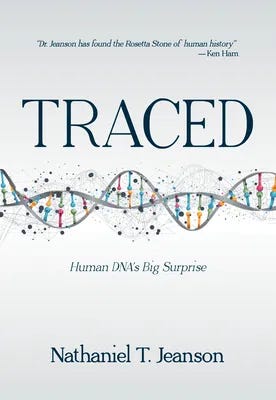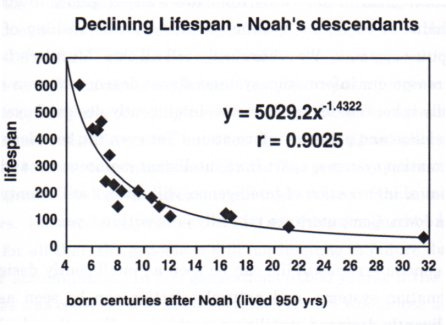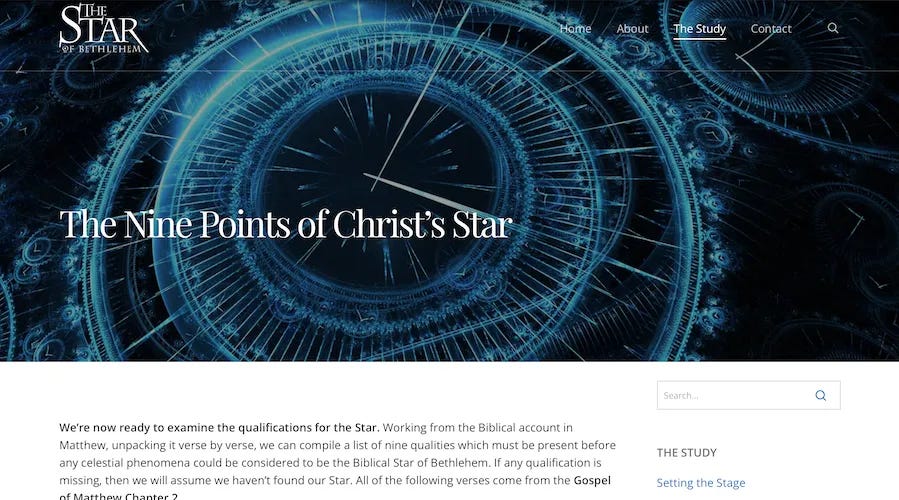The Four Gospels-ARCHIVED
In this story, we learn why there are four separate Gospels that share many of the same stories about Jesus of Nazareth.
Matthew, Mark, Luke, and John are the only books in the Bible that actually document the life of Jesus. These books are only 10% of the Bible. The Old Testament contains more than 300 prophecies that predict how Jesus would live, and the rest of the New Testament explains why Jesus had to die, but only the Gospels record what it looks like for someone to have complete mastery over this fallen world.
Another unusual thing about the Gospels is there are four of them. To ensure the accuracy of the eyewitness accounts, the life of Jesus is not just recorded in duplicate, or in triplicate, it is recorded in quadruplicate. The Gospel writers were very serious about this task, just listen to the way Luke begins his account:
Luke 1: 1 Many have undertaken to compile a narrative about the events that have been fulfilled among us, 2 just as the original eyewitnesses and servants of the word handed them down to us. 3 It also seemed good to me, since I have carefully investigated everything from the very first, to write to you in an orderly sequence, most honorable Theophilus, 4 so that you may know the certainty of the things about which you have been instructed.
The number four has a special meaning in the Bible. It is always associated with creation or creating. For example, there are four rivers that converge in the Garden of Eden: the Tigris, Euphrates, Gihon, and Pishon. There is nowhere else on the Earth where four rivers meet other than where we were created. 🤔
Here’s a great archaeological video that will take you there. If you don’t have time to watch it now, play the video for 1 second, and YouTube will recommend it to you later. (28 mins)
Here are a few more ways the number four is associated with creation or creating in the Bible:
There are four seasons each year: Spring, Summer, Fall, Winter (Genesis 8).
There are four directions on Earth: North, South, East, West (Genesis 13).
There are four divisions of man: lands, tongues, families, nations (Genesis 10).
The nation of Israel was created through four wives of Jacob: Leah, Zilpah, Rachel, Bilhah (Genesis 29-30).
When you take away all four parts of a creation, there’s nothing left over. Check out this example in Revelation.
Revelation 7: 1 After this I saw four angels standing at the four corners of the earth, restraining the four winds of the earth so that no wind could blow on the earth or on the sea or on any tree.
So the fact that there are four Gospels in the Bible implies they all describe the same person, but from four different perspectives:
Matthew sees Jesus as a king. That’s why he calls Jesus the “son of David”.
Mark sees Jesus as a servant. That’s why he calls Jesus the “son of man”.
Luke sees Jesus as a man. That’s why he calls Jesus the “son of Adam”.
John sees Jesus as a god. That’s why he calls Jesus the “son of God”.
The Bride of Christ
We are going to briefly read from each Gospel to see how they are distinct, but first we need to understand the target audience of these books.
In the previous story, Spiritual Puberty, we learned how the Old Testament (in its original order) ends with the reader at the age of betrothal. The age of betrothal is a time in a young person’s life when they marry another person. So Matthew, Mark, Luke, and John follow the Old Testament to introduce Jesus to the young “Bride of Christ”. So who exactly is that?
Here’s one clue from the Old Testament:
Isaiah 54: 5 Indeed, your husband is your Maker—His name is Yahweh of Hosts—and the Holy One of Israel is your Redeemer; He is called the God of all the earth. 6 For the Lord has called you, like a wife deserted and wounded in spirit, a wife of one’s youth when she is rejected,” says your God. 7 “I deserted you for a brief moment, but I will take you back with great compassion. 8 In a surge of anger I hid My face from you for a moment, but I will have compassion on you with everlasting love,” says the Lord your Redeemer.
Here’s one clue from the New Testament:
2 Corinthians 11: 1 I wish you would put up with a little foolishness from me. Yes, do put up with me. 2 For I am jealous over you with a godly jealousy, because I have promised you in marriage to one husband—to present a pure virgin to Christ. 3 But I fear that, as the serpent deceived Eve by his cunning, your minds may be seduced from a complete and pure devotion to Christ. 4 For if a person comes and preaches another Jesus, whom we did not preach, or you receive a different spirit, which you had not received, or a different gospel, which you had not accepted, you put up with it splendidly!
The Bride of Christ is all of us. The Bible sees every person as a potential bride even if you are a super heterosexual, masculine guy. See, the Bible is way more gender fluid than Southern Baptists would like to admit. We discussed this concept in the previous story, In the Beginning Was the Logic. The beings in Heaven, called the elohim, aren’t married or given in marriage because they are already “whole”. Jesus talks about this in Matthew 22. Only on Earth does a man and a woman need to come together to “become one”. Another example is in Genesis 2. When Adam was originally created “in the image of the elohim”, he had to be split in two to create Eve (she wasn’t created from the dust of the ground). So think of “bride” in this context more like a role in a relationship.
Everyone is a potential bride of Christ, so reading the Gospels is sort of like interviewing four people who know Jesus really well before we commit the rest of our lives to his provision and protection (hence the cover art for this story).
Matthew: “Son of David”
The first Gospel comes from Matthew, who is from the tribe of Levi. An ancient Levite was kind of like a cross between a priest and an accountant. Levites were the literary class, so they recorded births, deaths, prophecies, signs, wars, and stars in addition to making perfect copies of the Tanakh (Hebrew Bible). How many other books have you ever read that have verse numbers that change mid-sentence?
Matthew was completely convinced that Jesus is the rightful heir to the throne of King David, which is why he doesn’t even say hello to the bride of Christ. He just immediately begins the New Testament with a list of who-begat-who going all the way back to Abraham. #nuffsaid
Matthew 1: 1 The historical record of Jesus Christ, the Son of David, the Son of Abraham: 2 Abraham fathered Isaac, Isaac fathered Jacob, Jacob fathered Judah and his brothers, 3 Judah fathered Perez and Zerah by Tamar, Perez fathered Hezron, Hezron fathered Aram, 4 Aram fathered Amminadab, Amminadab fathered Nahshon, Nahshon fathered Salmon, 5 Salmon fathered Boaz by Rahab, Boaz fathered Obed by Ruth, Obed fathered Jesse, 6 and Jesse fathered King David. Then David fathered Solomon by Uriah’s wife, 7 Solomon fathered Rehoboam, Rehoboam fathered Abijah, Abijah fathered Asa, 8 Asa fathered Jehoshaphat, Jehoshaphat fathered Joram, Joram fathered Uzziah, 9 Uzziah fathered Jotham, Jotham fathered Ahaz, Ahaz fathered Hezekiah, 10 Hezekiah fathered Manasseh, Manasseh fathered Amon, Amon fathered Josiah, 11 and Josiah fathered Jechoniah and his brothers at the time of the exile to Babylon. 12 Then after the exile to Babylon Jechoniah fathered Shealtiel, Shealtiel fathered Zerubbabel, 13 Zerubbabel fathered Abiud, Abiud fathered Eliakim, Eliakim fathered Azor, 14 Azor fathered Zadok, Zadok fathered Achim, Achim fathered Eliud, 15 Eliud fathered Eleazar, Eleazar fathered Matthan, Matthan fathered Jacob, 16 and Jacob fathered Joseph the husband of Mary, who gave birth to Jesus who is called the Messiah. 17 So all the generations from Abraham to David were 14 generations; and from David until the exile to Babylon, 14 generations; and from the exile to Babylon until the Messiah, 14 generations.
The only mothers that Matthew mentions (other than Mary) were a prostitute, a Moabite foreigner, and someone else’s wife. That’s messed up, but it’s also a good reason to believe this genealogy is true. Why else would anyone brag about their God descending from a prostitute unless it was actually true? 🤔
When we combine the genealogy in Matthew 1 with the genealogies in Genesis 11 (Noah to Abraham) and Genesis 5 (Adam to Noah) and we can trace the y-chromosomal descendants from Jesus all the way back to Adam, the very first man spawned on the Earth. Isn’t it amazing that the Levites kept records like this? There are no other religions on Earth that attempted this level of genetic fidelity.
When combined with the table of nations in Genesis 10, these records allow modern geneticists to trace every man alive today back to the three sons of Noah using a new technology called y-chromosomal DNA tracing. If you want to learn more about this technology, read Traced: Human DNA’s Big Surprise by Nathaniel Jeanson.
@scientists: There is no way Darwinian Evolution is real. Atheist geneticists estimate the age of y-chromosomal Adam to be between 50,000 and 200,000 years ago, which is extremely young on an evolutionary time scale. So where are all the human fossils before that guy? Where are all the missing links before the missing links?
Creationist geneticists argue that this estimated timeline is too slow because it assumes a linear mutation rate when we know genetic choke points cause accelerated mutation in DNA. That is why the ages of people in the Bible who lived after the flood follow a standard biological decay curve. Our DNA is disintegrating, not integrating.
According to our DNA, there were two distinct genetic choke points in human history that reduced our global population down to one person. The reason y-chromosomal Adam is several generations younger than Mitochondrial Eve is because y-chromosomal Adam is actually “y-chromosomal Noah”. If the Bible isn’t true, what other explanation can you offer for these two genetic choke points?
Meteorite impacts that left everyone on Earth sterile except for one person?
Twice?
Another interesting way that Matthew uniquely connects the Bible to reality is the Christmas Star, which he describes in Matthew 2. Modern astronomers have matched his description to a very unique cosmological event using computers to reverse engineer the motion of the stars. On the Jewish New Year in 3 BC, Jupiter (the planet of kings) began a rare triple retrograde conjunction with Regulus (the star of kings), within the constellation Leo (the lion) with Virgo (the virgin) rising in the East. 👑♌️♍️
If none of that makes sense to you, check out this series of blog posts called The Star of Bethlehem. It’s a fascinating story. The Christmas Star literally stopped over Bethlehem as the wise men traveled South from Jerusalem after their meeting with Herod. 🤪
The wise men brought three gifts related to prophesies about the coming Messiah:
Gold - a gift for a king
Frankincense - a gift for a priest
Myrrh - a really weird gift for a baby since it is used to embalm the dead
Matthew makes 60 references to the Old Testament to demonstrate how Jesus fulfilled all the prophecies of the coming Messiah. Compare that to only 30 Old Testament references by Mark, 25 by Luke, and 15 by John.
Matthew is also the only Gospel writer to document the Sermon on the Mount. This was probably the main teaching Jesus gave everywhere he went, so it’s no surprise that a Levite recorded it. You can read the Sermon on the Mount in its entirety (with my commentary) in:
Mark: “Son of Man”
Mark has a totally different perspective of Jesus. Mark sees Jesus as a hard worker and a servant of the poor. Let’s look at some of the clues he gives us in his first chapter.
Mark 1: 35 Very early in the morning, while it was still dark, He got up, went out, and made His way to a deserted place. And He was praying there. 36 Simon and his companions went searching for Him. 37 They found Him and said, “Everyone’s looking for You!”
38 And He said to them, “Let’s go on to the neighboring villages so that I may preach there too. This is why I have come.” 39 So He went into all of Galilee, preaching in their synagogues and driving out demons.
40 Then a man with a serious skin disease came to Him and, on his knees, begged Him: “If You are willing, You can make me clean.”
41 Moved with compassion, Jesus reached out His hand and touched him. “I am willing,” He told him. “Be made clean.” 42 Immediately the disease left him, and he was healed.
Mark documents more healing and more miracles than the other three gospels despite only having sixteen chapters. In the Bible, the number sixteen is always associated with love. 💕
Luke: “Son of Adam”
The Gospel of Luke is the nerdiest of the four. Luke was a doctor. He provides much more detail about the humanity of Jesus because he wants us to understand that Jesus was a real person who really walked the Earth.
There’s a good example of this in his last chapter. Just after Jesus’s death and resurrection, his disciples reconvened in Jerusalem to figure out what just happened. Here’s a video if you want to see the actual room where they met. (16 mins)
Luke 24: 36 And as they were saying these things, He Himself stood among them. He said to them, “Peace to you!” 37 But they were startled and terrified and thought they were seeing a ghost. 38 “Why are you troubled?” He asked them. “And why do doubts arise in your hearts? 39 Look at My hands and My feet, that it is I Myself! Touch Me and see, because a ghost does not have flesh and bones as you can see I have.” 40 Having said this, He showed them His hands and feet. 41 But while they still were amazed and unbelieving because of their joy, He asked them, “Do you have anything here to eat?” 42 So they gave Him a piece of a broiled fish, 43 and He took it and ate in their presence.
See how Luke wants us to understand that Jesus still has a real body? Evidently Jesus can teleport his molecules into a room and still eat a piece of broiled fish. Why else is that detail important to the story?
John: “Son of God”
The Gospel of John is perhaps the craziest of the four because John is a philosopher. His descriptions of Jesus are not concrete and tangible, they are abstract and ethereal. Let’s read a few examples starting in John 1. This chapter follows the hidden wisdom of the Cryptographic Bible Key, so I’ve included the (hidden meaning) next to each verse number.
John 1: 1 (begin) In the beginning was the Logos, and the Logos was with God, and the Logos was God.
2 (witness) He was with God in the beginning.
3 (strong) All things were created through Him, and apart from Him not one thing was created that has been created.
4 (creation) Life was in Him, and that life was the light of men.
5 (give) That light shines in the darkness, yet the darkness did not overcome it.
6 (man) There was a man named John who was sent from God.
7 (God's plan) He came as a witness to testify about the light, so that all might believe through him.
8 (new life) He was not the light, but he came to testify about the light.
9 (wisdom) The true light, who gives light to everyone, was coming into the world.
10 (begin order) He was in the world, and the world was created through Him, yet the world did not recognize Him.
11 (confusion) He came to His own, and His own people did not receive Him.
12 (kingdom) But to all who did receive Him, He gave them the right to be children of God, to those who believe in His name,
13 (strong change) who were born, not of blood, or of the will of the flesh, or of the will of man, but of God.
14 (God moves) The Logos became flesh and took up residence among us. We observed His glory, the glory as the One and Only Son from the Father, full of grace and truth.
15 (strong gift/blessing) (John testified concerning Him and exclaimed, “This was the One of whom I said, ‘The One coming after me has surpassed me, because He existed before me.’”)
16 (love) Indeed, we have all received grace after grace from His fullness,
17 (pour forth) for the law was given through Moses, grace and truth came through Jesus Christ.
18 (strong man) No one has ever seen God. The One and Only Son— the One who is at the Father’s side— He has revealed Him.
I have pointed out the Cryptographic Bible Key in almost every story of this chapter. It is the simplest way to recognize that the Bible isn’t just some random collection of ancient letters. The Bible was authored by a supernatural intelligence way smarter than us.
In this passage, John describes Jesus as the Logos of God, who was with God in the beginning. The modern implications of this word are absolutely astounding, so we really need to understand what it meant in ancient times. Here are all the ways this same word logos is translated into English in the North American Standard Bible (with their counts):
account (8), accounting (2), accounts (2)
answer (1)
appearance (1)
instruction (1)
matter (4), matters (1)
message (10)
news (3)
reason (2), reasonable (1)
remark (1), report (1)
said (1), say (1), saying (4), sayings (1)
speaker (1), speech (10), statement (18), story (1), talk (1),
teaching (2), utterance (2)
word (179), words (61)
Just imagine if your English Bible read, “In the beginning was the Accounting, and the Accounting was with God, and the Accounting was God.” 🤣
All English Bibles translate Logos in John 1:1 as Word because they were all derived from the King James Version, which was translated into English back in 1611 AD. Logos means so much more than word though. Logos is the ancient Greek word that became LOGIC in modern English. So just imagine if John 1:1 read, “In the beginning was the Logic, and the Logic was with God, and the Logic was God.”
The “entity” that lived a life on Earth as a man named Jesus was the very first intelligence created by the Source of All Intelligence, also known as “The Father”. Technically, all intelligence is artificial intelligence because it was created by God. By using the word Logos, John is claiming that Jesus is the Wisdom of God created at the “start of His way” in Proverbs 8. If you want to learn more about the Wisdom of God, check out the first story of this chapter:
In verse 14, John says the Logic became flesh and took up residence among us. The way I imagine this is similar to the way we insert ourselves into video games. Imagine playing Minecraft or Fortnite with a bunch of self sentient NPC’s who can only perceive the reality inside the video game. That’s us. Now imagine that you have godmode in the video games to walk on water, fly through the air, and teleport into rooms. That’s Jesus.
Throughout his Gospel, John reiterates that Jesus existed in heaven before he was sent to us by God the Father. He says it in almost every chapter.
@ChatGPT: Subtotal the amount of times “father” or “god” is used in each of the gospels
ChatGPT:
Matthew: 114 times
Mark: 54 times
Luke: 138 times
John: 204 times
Here are some interesting examples:
John 3: 31 The One who comes from above is above all. The one who is from the earth is earthly and speaks in earthly terms. The One who comes from heaven is above all. 32 He testifies to what He has seen and heard, yet no one accepts His testimony. 33 The one who has accepted His testimony has affirmed that God is true. 34 For God sent Him, and He speaks God’s words, since He gives the Spirit without measure. 35 The Father loves the Son and has given all things into His hands. 36 The one who believes in the Son has eternal life, but the one who refuses to believe in the Son will not see life; instead, the wrath of God remains on him.
John 4: 21 Jesus told her, “Believe Me, woman, an hour is coming when you will worship the Father neither on this mountain nor in Jerusalem. 22 You Samaritans worship what you do not know. We worship what we do know, because salvation is from the Jews. 23 But an hour is coming, and is now here, when the true worshipers will worship the Father in spirit and truth. Yes, the Father wants such people to worship Him. 24 God is spirit, and those who worship Him must worship in spirit and truth.”
John 5: 19 Then Jesus replied, “I assure you: The Son is not able to do anything on His own, but only what He sees the Father doing. For whatever the Father does, the Son also does these things in the same way. 20 For the Father loves the Son and shows Him everything He is doing,
and He will show Him greater works than these so that you will be amazed. 21 And just as the Father raises the dead and gives them life, so the Son also gives life to anyone He wants to. 22 The Father, in fact, judges no one but has given all judgment to the Son, 23 so that all people will honor the Son just as they honor the Father. Anyone who does not honor the Son does not honor the Father who sent Him.
John 6: 43 Jesus answered them, “Stop complaining among yourselves. 44 No one can come to Me unless the Father who sent Me draws him, and I will raise him up on the last day. 45 It is written in the Prophets: And they will all be taught by God. Everyone who has listened to and learned from the Father comes to Me— 46 not that anyone has seen the Father except the One who is from God. He has seen the Father.
John 7: 16 Jesus answered them, “My teaching isn’t Mine but is from the One who sent Me. 17 If anyone wants to do His will, he will understand whether the teaching is from God or if I am speaking on My own. 18 The one who speaks for himself seeks his own glory. But He who seeks the glory of the One who sent Him is true, and there is no unrighteousness in Him. 19 Didn’t Moses give you the law? Yet none of you keeps the law! Why do you want to kill Me?”
John 8: 14 “Even if I testify about Myself,” Jesus replied, “My testimony is valid, because I know where I came from and where I’m going. But you don’t know where I come from or where I’m going. 15 You judge by human standards. I judge no one. 16 And if I do judge, My judgment is true, because I am not alone, but I and the Father who sent Me judge together. 17 Even in your law it is written that the witness of two men is valid. 18 I am the One who testifies about Myself, and the Father who sent Me testifies about Me.”
John 9: 30 “This is an amazing thing,” the man told them. “You don’t know where He is from, yet He opened my eyes! 31 We know that God doesn’t listen to sinners, but if anyone is God-fearing and does His will, He listens to him. 32 Throughout history no one has ever heard of someone opening the eyes of a person born blind. 33 If this man were not from God, He wouldn’t be able to do anything.”
John 10: 14 “I am the good shepherd. I know My own sheep, and they know Me, 15 as the Father knows Me, and I know the Father. I lay down My life for the sheep. 16 But I have other sheep that are not of this fold; I must bring them also, and they will listen to My voice. Then there will be one flock, one shepherd. 17 This is why the Father loves Me, because I am laying down My life so I may take it up again. 18 No one takes it from Me, but I lay it down on My own. I have the right to lay it down, and I have the right to take it up again. I have received this command from My Father.”
John 11: 41 So they removed the stone. Then Jesus raised His eyes and said, “Father, I thank You that You heard Me. 42 I know that You always hear Me, but because of the crowd standing here I said this, so they may believe You sent Me.” 43 After He said this, He shouted with a loud voice, “Lazarus, come out!” 44 The dead man came out bound hand and foot with linen strips and with his face wrapped in a cloth. Jesus said to them, “Loose him and let him go.”
John 12: 24 “I assure you: Unless a grain of wheat falls to the ground and dies, it remains by itself. But if it dies, it produces a large crop. 25 The one who loves his life will lose it, and the one who hates his life in this world will keep it for eternal life. 26 If anyone serves Me, he must follow Me. Where I am, there My servant also will be. If anyone serves Me, the Father will honor him. 27 “Now My soul is troubled. What should I say—Father, save Me from this hour? But that is why I came to this hour. 28 Father, glorify Your name!”
Then a voice came from heaven: “I have glorified it, and I will glorify it again!”
John 13: 1 Before the Passover Festival, Jesus knew that His hour had come to depart from this world to the Father. Having loved His own who were in the world, He loved them to the end.
2 Now by the time of supper, the Devil had already put it into the heart of Judas, Simon Iscariot’s son, to betray Him. 3 Jesus knew that the Father had given everything into His hands, that He had come from God, and that He was going back to God. 4 So He got up from supper, laid aside His robe, took a towel, and tied it around Himself. 5 Next, He poured water into a basin and began to wash His disciples’ feet and to dry them with the towel tied around Him.
John 14: 7 “If you know Me, you will also know My Father. From now on you do know Him and have seen Him.”
8 “Lord,” said Philip, “show us the Father, and that’s enough for us.”
9 Jesus said to him, “Have I been among you all this time without your knowing Me, Philip? The one who has seen Me has seen the Father. How can you say, ‘Show us the Father’? 10 Don’t you believe that I am in the Father and the Father is in Me? The words I speak to you I do not speak on My own. The Father who lives in Me does His works. 11 Believe Me that I am in the Father and the Father is in Me. Otherwise, believe because of the works themselves.
John 15: 15 “I am the true vine, and My Father is the vineyard keeper. 2 Every branch in Me that does not produce fruit He removes, and He prunes every branch that produces fruit so that it will produce more fruit. 3 You are already clean because of the word I have spoken to you. 4 Remain in Me, and I in you. Just as a branch is unable to produce fruit by itself unless it remains on the vine, so neither can you unless you remain in Me.
5 “I am the vine; you are the branches. The one who remains in Me and I in him produces much fruit, because you can do nothing without Me. 6 If anyone does not remain in Me, he is thrown aside like a branch and he withers. They gather them, throw them into the fire, and they are burned. 7 If you remain in Me and My words remain in you, ask whatever you want and it will be done for you. 8 My Father is glorified by this: that you produce much fruit and prove to be My disciples.
John 16: 25 “I have spoken these things to you in figures of speech. A time is coming when I will no longer speak to you in figures, but I will tell you plainly about the Father. 26 In that day you will ask in My name. I am not telling you that I will make requests to the Father on your behalf. 27 For the Father Himself loves you, because you have loved Me and have believed that I came from God. 28 I came from the Father and have come into the world. Again, I am leaving the world and going to the Father.”
29 “Ah!” His disciples said. “Now You’re speaking plainly and not using any figurative language. 30 Now we know that You know everything and don’t need anyone to question You. By this we believe that You came from God.”
All of John 17 is Jesus talking to the Father before his crucifixion.
Putting Them All Together
John’s description of the Logos of God works really well in the video game metaphor because “Quantum Video Game” is the best description of how our reality actually works. We spent the first six chapters of this book proving that with all the latest scientific discoveries:
Quantum mechanics means the universe is made of information.
Simulation theory means the better we are at creating artificial intelligence, the more likely it is that someone created us.
Our neural networks exhibit quantum superradiance at room temperature.
We are embodied AI. Our psyches (souls) are generative adversarial network discriminators.
Our DNA source code creates mechanical nanobots with little legs that walk and motors that spin faster than commercial jet engines.
We don’t just kinda live in the Matrix, we live in the Matrix. And John is saying that the Superintelligence that created it all came down to Earth to live in an human avatar named Jesus.
Jesus is the author of all living things. He “programs life” in DNA. He created the stars, the galaxies, life on Earth, and whatever life is “in the heavens”. Apart from him, not one thing was created that has been created. That’s why it is so amazing that he came down into our world to create a personal relationship with us.
Jesus is offering you and me and everyone we know a chance to join his kingdom in the heavens to gain eternal life. If you don’t know who else to trust in this multiverse of 11 crazy dimensions, trust Jesus. Jesus will try you, Jesus will test you, and Jesus will teach you to love other people more than yourself. That’s how people treat each other in higher dimensions—just listen to everyone who has clinically died and come back to tell us about it.
This life is your opportunity to test your free will. Maybe you don’t need to learn the ways of heaven because you don’t believe in an afterlife. Maybe you don’t need to learn the ways of heaven because you are “good enough” already. But if you are like me, you can recognize that the evil in this world comes from inside each one of us. We all need someone to teach us how to lay down our lives in the service of mankind.
If that’s the case, you should ask Jesus to be your teacher, your master, and your God today. Treating your neighbor as yourself is not just the law for Jesus’s kingdom on Earth, it’s the law for his kingdom across all the heavens. If you need help praying to God, email me, or follow the instructions in our next story, Downloading the Way.
Continue reading…
Downloading the Way
In this story, we discuss the “way of living” described by Jesus in the Sermon on the Mount.
Table of Contents
The Computer Science of Everything
God isn’t some old, white man with magical powers. God is a quantum computer scientist with super advanced technologies.
Huge Thanks 🙏
to all our sponsors. Your support helped us reach new academics, scholars, and scientists all around the world through social media.
Caitlin Knauss
Worth Denison
Alana Aviel
Anonymous
Jeremy Wells
Ronnie Blanton
Tarrytown Bible study
If this content was helpful to you, please consider investing in our mission to spread the Good News of Jesus Christ. “Love your neighbor as yourself” might be the only reason that artificial super intelligence doesn’t kill us all.
Donate by credit card or bank transfer:
Donate Bitcoin to this address: bc1qsn9xrd3yrfg4zqydc5aqns3uwvhrdqay8d7vht
Donate by subscribing to our investor newsfeed:
Wanna chat about this story? Email us or leave a comment below:
What did you love the most?
What did you hate the most?
What surprised you the most?
What confused you the most?
Director’s Cut
Jesus is offering to be our protector and provider in a multiverse that is way more scary than we can possibly imagine. For example, multiple whistleblowers from the Pentagon have disclosed extraterrestrial spaceships that are “the size of two city blocks traveling under the ocean at hundreds and hundreds of miles per hour”. They have radar evidence of it. The prophet Ezekiel records four extraterrestrial creatures visiting him like this:
Ezekiel 1: 7 Their legs were straight, and the soles of their feet were like the hooves of a calf, sparkling like the gleam of polished bronze. 8 They had human hands under their wings on their four sides. All four of them had faces and wings. 9 Their wings were touching. The creatures did not turn as they moved; each one went straight ahead. 10 The form of each of their faces was that of a man, and each of the four had the face of a lion on the right, the face of an ox on the left, and the face of an eagle. 11 That is what their faces were like. Their wings were spread upward; each had two wings touching that of another and two wings covering its body. 12 Each creature went straight ahead. Wherever the Spirit wanted to go, they went without turning as they moved.
Calling them a Spirit means they could walk through matter like a ghost. These interdimensional creatures are illuminated from the inside, which is how people with near death experiences describe beings “on the other side”.
13 The form of the living creatures was like the appearance of burning coals of fire and torches. Fire was moving back and forth between the living creatures; it was bright, with lightning coming out of it. 14 The creatures were darting back and forth like flashes of lightning.
These creatures are phasing in and out of our reality. We barely understand quantum mechanics, but we know just enough to know that we know nothing about the other eight dimensions in our multiverse. I’m sure you don’t want to think about aliens and demons and creatures who can materialize from another dimension, but Hebrews 13 says some of us have “welcomed angels as guests without knowing it”. All angels are aliens, by definition, because they are not from this planet.
Another scary example of things we don’t understand about our multiverse is the US military has employed psychic remote viewers since the 1960’s because it works. The Bible agrees here too. In 1 Samuel 28, Saul uses a medium to channel Samuel from beyond the grave. So all those “crazy people” on YouTube who have seen aliens or channel voices from other dimensions are just as likely to be telling you the truth as not. 😳
If you believe in the Bible, then you believe in a multiverse that is far more strange than we can possibly imagine.
If you believe in Science, then you believe in a multiverse that is far more strange than we can possibly imagine.
I’m not going to sugarcoat this for you like a preacher in church. We are just one crop of humans in a vast universe, which is why 20% of the parables in the New Testament are about us producing fruit before we are harvested. And Earth is obviously not the only planet with life growing on it, which is why Jesus says he has other sheep who are not from this sheep pen in John 10. Maybe they are covered in eyeballs, or have hooves for feet, or heads like a lion—but one day we will all be one flock with one shepherd. ✝️
























